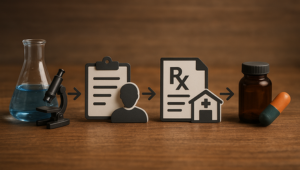Program Overview
This program provides an in-depth understanding of the drug evolution process, covering the journey from discovery to market approval. Attendees will gain detailed insights into Investigational New Drug (IND), New Drug Application (NDA), and Abbreviated New Drug Application (ANDA) processes, along with regulatory requirements across global markets. Key distinctions between biological and chemical drug candidates will be explored, including trends and challenges. Participants will benefit from real-world case studies, interactive activities, and expert-led sessions designed to enhance their regulatory knowledge, compliance strategies, and decision-making capabilities in drug development.
Features
- Develop a comprehensive understanding of IND, NDA, and ANDA processes.
- Identify key differences between biological and chemical drug candidates and their regulatory pathways.
- Gain clarity on global submission requirements and harmonized guidelines (e.g., ICH).
- Apply industry best practices for successful regulatory submissions and lifecycle management.
Target audiences
- Pharma research teams, drug development professionals, regulatory affairs specialists
Curriculum
- 7 Sections
- 27 Lessons
- 2 Days
Expand all sectionsCollapse all sections
- Introduction to Drug Evolution Process3
- Investigational New Drug (IND) Applications5
- Biological vs. Chemical Drug Candidates5
- 3.1Overview of biological drugs: Monoclonal antibodies, vaccines, biosimilars.
- 3.2Overview of chemical drugs: Small molecules and synthetic drugs.
- 3.3Comparative discussion: Development timelines, challenges, and approval pathways.
- 3.4Trends in drug evolution: Shift towards biologics.
- 3.5Activity: Breakout session for identifying pros and cons of biologics vs. chemicals in a case scenario.
- Regulatory Pathways and Submission Process3
- New Drug Application (NDA)4
- Abbreviated New Drug Application (ANDA)4
- Lifecycle Management of Drug Approvals3








